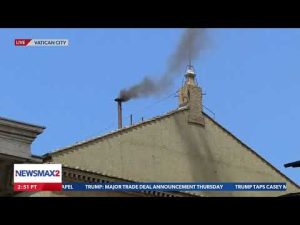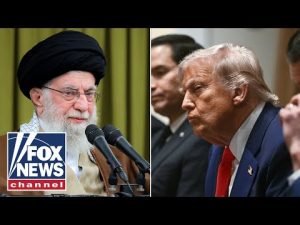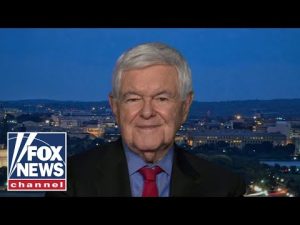In a world where Washington often feels more like a Broadway show than a place of serious governance, it seems like some folks on Capitol Hill are living in a time warp. Recently, the chatter has been filled with wild claims that President Trump’s tariffs only benefit the rich—a notion that’s as misguided as bringing a spoon to a soup cook-off. During a discussion on a conservative news channel, National Economic Council Director Kevin Hassett weighed in on the issue, bringing with him a refreshing wave of common sense.
Hassett pointed out that under President Trump’s America First policy, wages rose by $6,500 between 2017 and 2019. This wasn’t some trickle-down magic; it was real, tangible growth that benefitted those on the lower rungs of the economic ladder more than those at the top. Income inequality, often the demon many politicians claim to fight, actually declined during this period. The logic is straightforward: if you oppose these tariffs, you’re effectively opposing wage growth, job creation, and reductions in income inequality. Perhaps those Capitol Hill critics have forgotten which side they’re on, or maybe they’re just nostalgic for a time when economic growth was a mysterious concept only found in textbooks.
Meanwhile, the Federal Reserve, with their hands on the economic thermometer, seem to be in a state of perpetual uncertainty. Amid concerns about tariffs and their impact on the economy, Fed Chair Jay Powell expressed hesitation, suggesting it’s too early to predict the economic implications. The Fed’s caution is understandable, but Hassett isn’t convinced that all this doom and gloom is warranted. After all, the job market is stronger than some would like to admit, and inflation—a specter often paraded around Washington—isn’t wreaking havoc like expected.
Critics, like those at the New York Times, continue to wave recession flags, seemingly unfazed by the actual data which shows no signs of trouble. They remind one of those old-time prophets, crying wolf even when no wolf is in sight. Yet Kevin Hassett remains optimistic. He suggests that the Fed’s hesitance might be more about politics than economics, especially when juxtaposed against their previous silence during less cautious fiscal eras.
At the heart of this economic debate lies the effectiveness of tariffs. Unlike the indiscriminate impositions often seen in the past, Trump’s tariffs have been strategic, targeted, and—by all accounts—beneficial. It’s a change from past approaches, aimed at bolstering domestic jobs and production, without triggering shelves to go bare or inflation to skyrocket as predicted by the scare-mongers. As Hassett suggests, Trump saw what worked before and is now simply scaling it up. In this riveting economic chess game, the only checkmate seems to be in favor of American workers, even if the naysayers have temporarily misplaced their vision.







